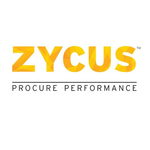What Is Contract Lifecycle Management Software?
Software called Contract Lifecycle Management (CLM) is a potent instrument that aids companies in managing their contracts from beginning to end, guaranteeing effectiveness, profitability, and compliance. It streamlines the entire contract management process by offering a consolidated platform for contract creation, storage, negotiation, execution, and tracking. Contract authoring, approval processes, e-signatures, renewals, and reporting are all included in this.
All things considered, CLM software provides a complete solution for companies looking to effectively manage their contracts and proactively reduce risks. The capacity of CLM software to automate procedures and do away with manual labor is one of its primary features; this reduces human error and saves time. Businesses may quickly and simply develop accurate and consistent contracts that meet their unique needs and compliance standards by using configurable templates and clause libraries.
Furthermore, CLM software provides version control, which facilitates the tracking of contract modifications and guarantees responsibility and transparency. By offering a consolidated view of all contract data, including important dates, milestones, and obligations, CLM software also aids in contract administration. By doing this, companies may keep an eye on the status of their contracts proactively and set up notifications for things like renewals or compliance deadlines.
Insights into contract performance are also provided via advanced reporting and analytics features, which enable companies to pinpoint problem areas and make informed choices. Additionally, CLM software connects with other corporate systems like ERP and CRM, guaranteeing consistency across processes and facilitating a smooth data flow between departments.
This increases teamwork and communication, which boosts the effectiveness of contract management as a whole. Cloud-based CLM software offers a safe and convenient platform for contract management in light of the growing popularity of remote work and the demand for safe digital solutions. This reduces the possibility of losing crucial papers and makes managing a high volume of contracts easier by doing away with the need for physical storage space.
What Are The Recent Trends In Contract Lifecycle Management Software?
The growing need for cloud-based solutions is one of the most recent developments in contract lifecycle management software. Access to contract management software from any location at any time has become essential as more and more companies use digital procedures and remote labor. The combination of machine learning (ML) and artificial intelligence (AI) technology is another trend in contract lifecycle management software.
Businesses can save time and money by using these solutions to automate processes like contract evaluation and compliance monitoring. Additionally, data analytics is becoming more and more important in contract lifecycle management software. This enables businesses to learn from their contracts in ways like seeing possible hazards or possibilities for cost reduction.
This tendency is anticipated to continue expanding as long as data remains a crucial component of decision-making. Additionally, mobile compatibility is becoming more and more crucial for contract management software. Given the growing use of mobile devices in the office, many organizations find it quite beneficial to be able to access and manage contracts on smartphones and tablets.
Last but not least, software for contract lifecycle management is moving toward more intuitive and user-friendly designs. This results in a more effective contract management process by making the software easier to use and lowering the learning curve for new users.
Keep an eye out for these trends and think about how they fit your company's requirements when you're thinking about investing in contract lifecycle management software. You may improve your entire business operations and expedite your contract administration process with the correct software.
Benefits Of Using Contract Lifecycle Management Software
Contract Lifecycle Management (CLM) software is a vital tool for any business trying to streamline and accelerate its contract management processes. It offers a single, automated platform for managing every stage of the contract lifecycle, from contract creation to execution, monitoring, and renewal. Increased accuracy and efficiency in contract administration are only two of the many benefits that businesses may gain from implementing a strong CLM solution.
1. Improved Contract Management And Visibility: One of the primary advantages of a CLM software is its ability to offer complete visibility and control over contracts. It eliminates the chance of miscommunication, missing deadlines, or forgetting important details of the contract. Because all contracts are stored in one location, stakeholders can easily access, monitor, and make decisions based on the data. This leads to increased accountability and improved teamwork.
2. Time And Money Savings: Manual contract administration is labor-intensive, error-prone, and necessitates extensive back-and-forth communication. On the other hand, businesses can use CLM software to automate the processes of contract creation, approval, and execution. This reduces the time spent on contract administration and saves money by cutting the costs of paper, printing, and storage.
3. Better Compliance And Risk Management: It can be challenging to comply with regulatory obligations and ensure that contract risks are kept to a minimum without the right resources. CLM software offers features like automated warnings, customized procedures, and approvals to ensure that all contracts meet compliance requirements. It also provides a comprehensive audit trail to track all contract approvals and amendments, reducing the possibility of non-compliance and related legal issues.
4. Better Contract Performance: Monitoring CLM software's real-time analytics and reporting capabilities provide crucial data on contract performance. Businesses can use this to identify bottlenecks, improve processes, and negotiate better terms in upcoming contracts. It also enables them to evaluate suppliers, vendors, and other contract partners' performance and take the necessary actions to strengthen their bonds.
5. The Capacity To Grow And Change: CLM software is incredibly scalable and adaptable enough to change with an organization's demands, unlike traditional contract administration methods. When a company grows and takes on more contracts, the software can readily handle the increase in workload. Additionally, it provides a flexible foundation for handling contracts of varying complexity.
Important Factors To Consider While Purchasing Contract Lifecycle Management Software?
There are a number of crucial aspects to take into account when buying contract lifecycle management software to make sure you make an informed choice that suits your company's requirements. When weighing your options, bear the following points in mind:
1. Features And Functionality: The first thing to think about is what aspects of a contract lifecycle management software your company needs. Find a solution that provides pertinent features including contract authoring, automated processes, contract templates, digital signatures, and contract analytics after first determining your problems and desired results.
2. Scalability And Integration: The requirement for contract management software will increase as your company expands. Selecting a solution that can work with your current systems and procedures and adapt to your changing needs is essential. In addition to saving you time and effort, this will guarantee that information moves smoothly throughout your company.
3. User-Friendliness: Successful software uptake and use depend on an intuitive user interface. Regardless of technical proficiency, look for a solution that is simple to use and straightforward for all users. In addition to improving user acceptance, this will boost productivity and efficiency.
4. Security And Compliance: Since contracts include private data, it's critical to make sure your contract management software has strong security features to guard against unwanted access. The program should also abide by pertinent laws like the CCPA and GDPR.
5. Customer Support: Purchasing a contract management solution is a big decision, and you should have trustworthy customer service to help you with any problems. Choose a service that provides thorough training materials in addition to several support channels including chat, email, and phone.
6. Cost And ROI: Take into account the software's cost as well as the time, resource, and efficiency savings and return on investment it will provide for your company. To determine which supplier offers the best value for your money, compare the costs of various services and assess their pricing structures.
What Are The Key Features To Look For In Contract Lifecycle Management Software?
From request and creation to negotiation, approval, and renewal, Contract lifetime Management (CLM) software assists organizations in managing, automating, and streamlining the whole contract lifetime. Choosing the best CLM software for their business needs might be overwhelming for buyers due to the abundance of possibilities. Here are the essential characteristics of Contract Lifecycle Management software to help you make an informed choice.
1. Centralized Contract Repository: This feature, which enables users to store and manage all contracts in one location, is an essential component of CLM software. This makes it simpler to look for, access, and monitor contracts and does away with the need to store physical documents.
2. Contract Drafting And Collaboration: An easy-to-use contract drafting tool with pre-approved templates, clauses, and digital signature capabilities should be included in the software. Additionally, it should have collaboration tools that let all parties involved collaborate in real time and expedite the contract creation process.
3. Automated Approvals And Alerts: Manually approving contracts can be laborious and error-prone. Seek out software that routes contracts to the appropriate stakeholders for assessment and approval by automating the approval process according to predetermined rules. In order to guarantee prompt action on contracts that are about to expire or be renewed, it should also have an alert system.
4. Contract Analytics And Reporting: To monitor important contract parameters like contract values, expiration dates, and renewal rates, robust CLM software should offer sophisticated analytics and reporting features. In order to gain knowledge about contract performance and make wise decisions, users should also be able to run personalized reports.
5. Interface And Scalability: To further use data and optimize procedures, look for software that provides smooth interface with other corporate applications, such as CRM and ERP systems. Additionally, be sure the software can grow with your company and meet your changing contract management requirements.
6. Contract Compliance Management: The success of any company depends on its ability to fulfill its contractual duties. To guarantee contract compliance and lower the possibility of legal issues, look for features like version control, audit trails, and automatic compliance checks.
7. User-Friendly Interface And Training: All stakeholders should find it simple to use and adopt the software if it has an intuitive and user-friendly interface. To assist users in becoming acquainted with the capabilities and functionalities of the software, certain CLM software suppliers also provide training and assistance.
Why Do Businesses Need Contract Lifecycle Management Software?
To effectively manage their contracts from inception to renewal, businesses use Contract Lifecycle Management (CLM) software. This program ensures compliance and lowers risk by streamlining the entire contract process, from creation and negotiation to approval and execution. Businesses want CLM software primarily to boost productivity and save time.
All contract-related activities can be automated using CLM, doing away with the requirement for human data entry and lowering the possibility of mistakes. Businesses are able to concentrate on other crucial duties as a result, which boosts output and efficiency. Additionally, CLM software aids companies in keeping command of their contracts. Because all contracts are kept in one place, it's simpler to keep track of and keep an eye on crucial dates like renewal and expiration dates.
This lowers the possibility of missing deadlines and guarantees that contracts are renewed on schedule, preventing any possible financial or legal repercussions. Enhanced visibility is a key advantage of CLM software. Businesses may readily access and monitor contract information, including terms, important dates, and contract status, since all contracts are kept in one central location.
Because companies have a clear grasp of their contractual duties and performance, this encourages transparency and facilitates better decision-making. Additionally, by keeping correct records and guaranteeing regulatory compliance, CLM software assists companies in reducing risk. By offering a framework for standardizing and enforcing compliance across all contracts, it also makes it possible for improved contract administration.
Furthermore, CLM software provides analytics and reporting that may be customized, giving companies important information about their contracting procedures. This makes it possible to identify areas for improvement and make data-driven decisions. All things considered, companies require CLM software in order to optimize their contract procedures, boost productivity, keep control, enhance visibility, reduce risk, and make wise judgments. Significant cost reductions and general business success can result from investing in a well-designed CLM solution.
How Much Time Is Required To Implement Contract Lifecycle Management Software?
Your organization's unique goals and requirements will determine how Contract Lifecycle Management (CLM) software is implemented. In general, implementation can take anywhere from a few weeks to many months. A number of elements must be taken into account in order to better grasp the precise timeframe for deploying CLM software.
These include your company's size and complexity, the quantity of contracts you will oversee, the degree of modification needed, and how well your team adopts new software. Within a few weeks, smaller companies with fewer contracts and a more straightforward contract process might be able to deploy a CLM program.
However, a longer implementation period can be necessary for larger firms with a more intricate contract procedure and a higher volume of contracts. The installation schedule may also be impacted by the degree of customization needed for the CLM software. The program may need to be customized to meet your demands if your company has certain contract procedures and criteria, which could lengthen the deployment period.
It is important to remember that your team's effectiveness and commitment to embracing the new system will also be critical to the success of the CLM software installation. To guarantee a seamless transition and efficient software use, sufficient training and support should be offered. All things considered, the amount of time needed to establish a CLM software may vary, but it is an investment worth making because it streamlines and automates the contract management process, which can ultimately save time and resources.
Selecting a dependable and easy-to-use CLM software that fits your unique objectives and deployment schedule requires careful consideration of the demands of your company.
What Is The Level Of Customization Available In Contract Lifecycle Management Software?
From inception to execution to renewal, the entire contract management process may be automated and streamlined with the help of Contract Lifecycle Management (CLM) software. The degree of customisation offered to satisfy the unique requirements of your company is a crucial factor to take into account when assessing CLM software solutions. Fundamentally, CLM software provides a set of capabilities that are common to all contract formation, negotiation, tracking, and cooperation.
However, there are significant differences in the degree of personalization offered by various companies. While some might provide more sophisticated and customized solutions, others might only offer a basic set of customisation possibilities. The degree of customisation that CLM software offers is mostly determined by how flexible its processes and templates are. A strong CLM program will enable the development of customized templates that are tailored to the particular contract types and procedures used by your company.
Certain fields, conditions, and approval procedures that are crucial to your company may be included in these templates. Additionally, for businesses with intricate contract workflows and multi-level approval procedures, the flexibility to modify user roles, permissions, and access levels is essential. It guarantees that only authorized individuals have access to sensitive data and provides improved control and visibility over the contract management process.
The ability of CLM software to integrate is another crucial component of customization. Integrating your contract management process with other company systems, like CRM, ERP, or eSignature solutions, can significantly improve its functionality and effectiveness. Among CLM software options, this degree of integration might be a key differentiation.
Additionally, some CLM software might provide analytics and reporting customization choices. This enables the development of personalized reports and dashboards to obtain insightful information on contract data for improved decision-making. It is crucial to evaluate the software's ease of customization while evaluating the degree of customisation that is possible with CLM software.
While some providers have user-friendly interfaces that make customization and setting simple, others may require substantial technical skill or expensive professional services to make modifications.
Which Industries Can Benefit The Most From Contract Lifecycle Management Software?
From tiny firms to major corporations, a variety of industries can benefit from Contract Lifecycle Management (CLM) software. It is intended to assist enterprises in efficiently managing their contract portfolio by streamlining the entire contract management process, from inception to renewal. The following sectors stand to gain the most from the use of CLM software:
1. Legal Services Sector: Contracts are essential to the day-to-day activities of the legal services sector. Legal practitioners may write, save, and manage contracts with ease using CLM software, which lowers the possibility of mistakes and ensures regulatory compliance.
2. Healthcare Sector: Contracts are utilized in the healthcare sector for a number of reasons, including insurance, supplier, and patient care agreements. Healthcare companies may lower compliance risks and manage these contracts more effectively with the use of CLM software.
3. Government And Public Sector: For procurement, service agreements, and other purposes, government agencies and other public sector enterprises also rely significantly on contracts. For these companies, CLM software can enhance the contract administration procedure, guaranteeing cost savings, compliance, and transparency.
4. Manufacturing Industry: For distributor agreements, procurement contracts, and supplier contracts, contract management is essential in the manufacturing sector. Manufacturers may monitor payment terms, expedite contract procedures, and improve vendor relationships with CLM software.
5. Financial Services Industry: Contracts are used by banks, insurance providers, and other financial organizations for a number of reasons, such as loan agreements, insurance coverage, and mergers and acquisitions. These firms can lower operating expenses and increase productivity by using CLM software to streamline contract generation, approval, and tracking.
6. Information Technology Industry: Contracts are essential for managing vendor relationships, outsourcing services, and protecting intellectual property in the quick-paced IT sector. IT firms may reduce the risk of conflicts, guarantee compliance, and keep control over their contracts with the use of CLM software.
7. Construction Sector: The construction sector has a lot of contracts to handle, ranging from material purchase agreements to subcontractor agreements. Construction firms can decrease delays, lower risks, and enhance stakeholder communication by using CLM software to expedite the contract management process.
Conclusion
Conclusion: Purchasing dependable and effective contract lifecycle management software is essential for any corporation in the fast-paced commercial environment of today. After carefully examining and evaluating the main characteristics, advantages, and factors, we can state with confidence that this technology is a useful tool for reducing risks and expediting contract management procedures.
The leading suppliers in this field have been discussed, and each one has special features and advantages to meet various company requirements. Regardless of the size of your company, there is a solution that works for you. We strongly advise evaluating your organization's requirements, financial constraints, and objectives in order to identify the best CLM software before making your final choice.
To make sure the software fits with your future expansion goals, you should also take into account its scalability and customization possibilities. Involving end users and important stakeholders in the decision-making process is also crucial to ensuring that the software satisfies their needs and is easy to use. Finally, remember to speak with the vendor's implementation and support staff to learn about their procedures and availability for any help that may be required.
In your quest for the ideal contract lifecycle management software for your company, we hope that this buyer's guide has given you insightful information. Make a well-informed choice and begin enjoying the advantages of more efficient contract management procedures.






















